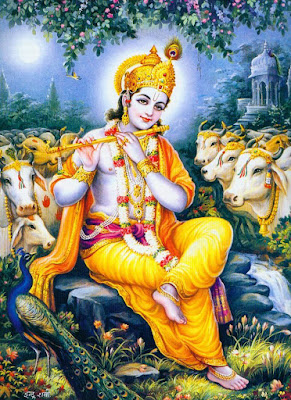(Tiruvarur Lord Tyagaraja and Devi Nilotpalamba - sreenivasarao's blogs)
śrīmuttusvāmīdīkṣitaviracita śrīnīlōtpalanāyike
śrīnīlotpalanāyike jagadambike
śrīnagaranāyike māmava varadāyike
dīnajanārtiprabhañjanarītigaurave
deśikapradarśitacidrūpiṇi natabhairave
ānandātmānubhave adrirājasamudbhave
sūnaśarārivaibhave jñānasudhārṇave śive
saṅkalpavikalpātmakacittavṝttijāle
sādhujanārādhitasadgurukaṭākṣamūle
saṅkaṭaharadhūrīṇataraguruguhānukūle
ṣamastaviśvotpattisthitilayādikāle
viṭaṅkatyāgaṛājamohitavicitralīle
saṅkari kṛpālavāle hātakamayacele
paṅkajanayanaviśāle padmarāgamaṇimāle
saṅkarasannutabāle śāradagāna lole
saṅkarasannutabāle śāradagāna lole
jagadambike śrī nīlotpala nāyike - Oh Universal Mother, the queen who has a blue lotus-like appearance!
śrī nagara nāyike - The goddess who lords over Srinagara, also the Sri Chakra, representing all creation,
vara dāyike - Kind Giver of boons,
dīnajana arti prabhañjana rīti gaurave - The One famed for destroying the misery of the wretched (devotees),
deśika pradarśita cidrūpiṇi - The One who graced the learned with Your form of Abolute Consciousness,
bhairave nata - (The One to whom) Shiva as Bhairava bowed,
ānanda atmā anubhave - The embodiment of soul's experience of bliss,
adri rāja samudbhave - born to the Mountain king,
sūna śara ari vaibhave - the beloved of (Shiva) who was the enemy of Cupid/Manmatha wielding arrows of flowers,
jñāna sudha arṇave śive - The Ocean of the nectar of wisdom, Oh Consort of Shiva!
saṅkalpa vikalpa ātmaka citta vṝtti jāle - The One who weaves the web of mind's tendencies for resoluteness and dissoluteness,
sādhu jan ārādhita sadguru kaṭākṣa mūle - The Source of Guru's grace, whom the virtuous and noble devotees supplicate to,
saṅkaṭa hara dhūrīṇa tara guruguha anukūle - The One who facilitates Guruguha, adept at removing (my) woes,
ṣamasta viśvotpatti sthiti laya ādi kāle -The Source called Time, responsible for all creation, sustenance and dissolution,
viṭaṅka tyāgaṛāja mohita vicitra līle - The One engaged in the divine/inscrutable play of bewitching the beautiful Lord Tyagaraja = Shiva of Tiruvarur,
saṅkari kṛpālavāle hātaka maya cele - Oh Shankari, full of compassion, wearing golden raiments,
paṅkaja nayana viśāle padmarāga maṇi māle - With big lotus-like eyes, wearing a necklace of rubies and gems!,
saṅkara sannuta bāle - The One to whom even Shiva bows down (as the Cosmic Source of all Creative energy),
śāradā gāna lole - The One addressed as Sharada*, and One who loves song,
ava māṃ - please save me!
saṅkara sannuta bāle - The One to whom even Shiva bows down (as the Cosmic Source of all Creative energy),
śāradā gāna lole - The One addressed as Sharada*, and One who loves song,
ava māṃ - please save me!
* Sharada is the Goddess of the wintry lake, in Srinagar, also called goddess Mahasarasvati, the source of all human knowledge.
He offered Her songs in the eight Sanskrit declensions, and introduced eight variations of gaula. This song is in Nari Ritigaula, addressed in the vocative declension, and you can hear it here. (Click the link to watch/hear my favourite musician!)











